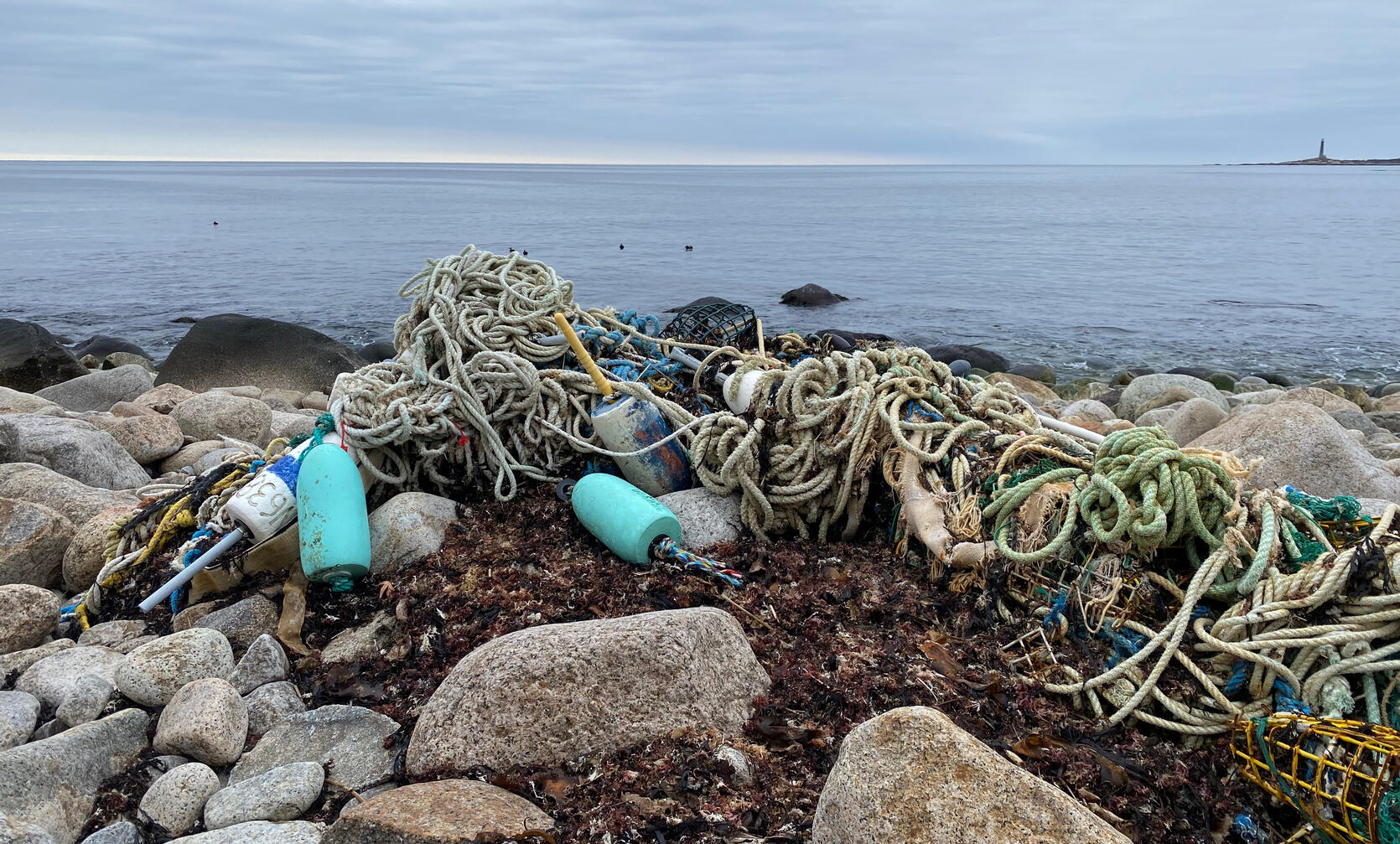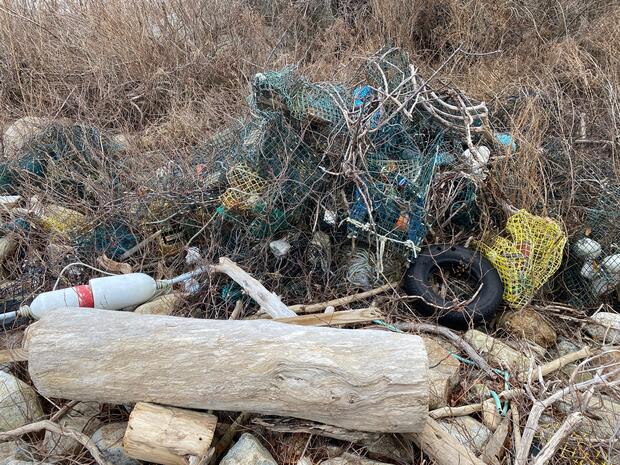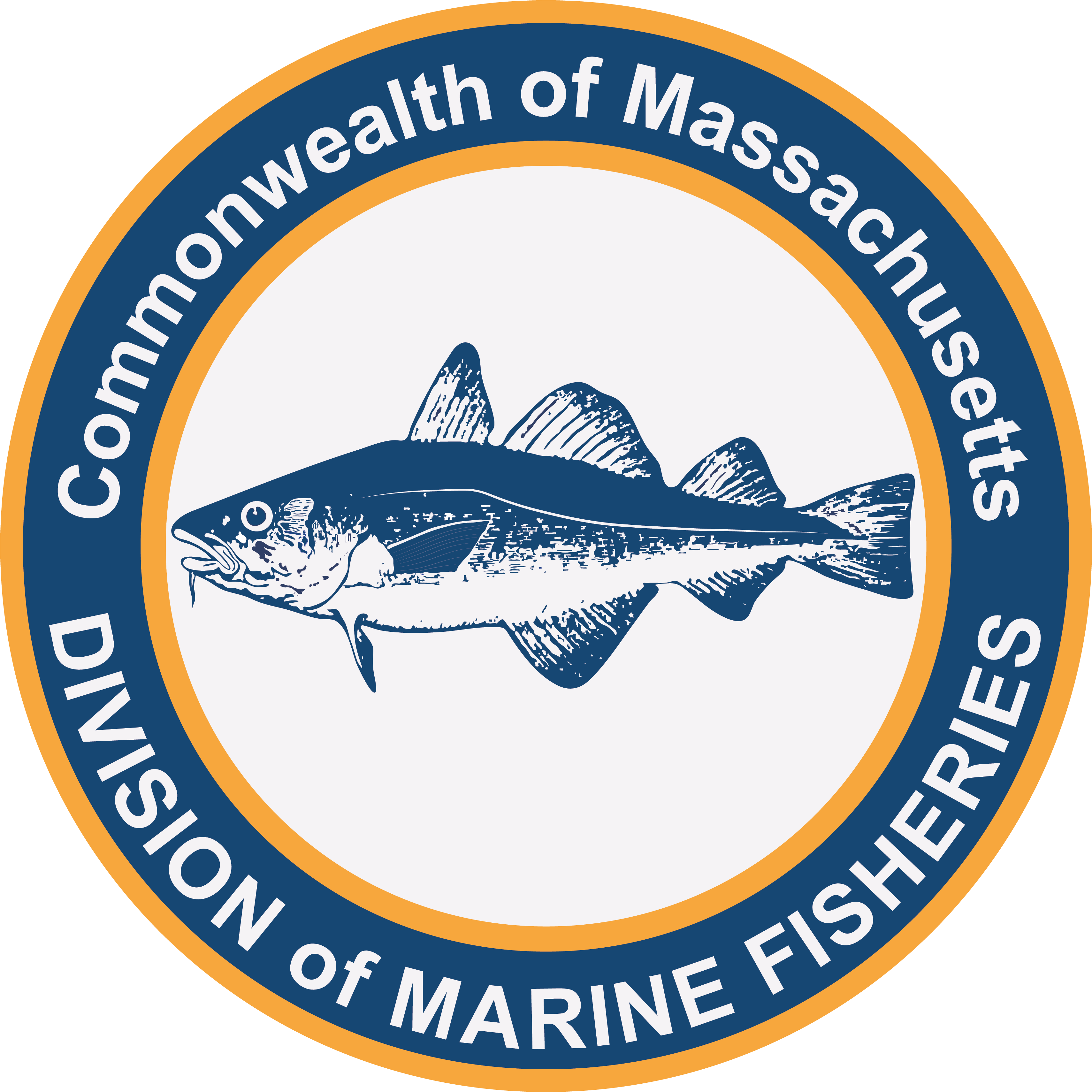- Division of Marine Fisheries

Massachusetts law now allows for the efficient and timely removal of abandoned, lost, and derelict fishing gear from our shorelines and waters. A new law has provided DMF, through its Marine Fisheries Advisory Commission, with the authority to regulate and permit certain removal and disposal activities. This amends an antiquated law—dating back to a time of salvageable wooden traps—that bestowed property rights to this gear at sea and on shore and afforded its owners 30-days to recover the gear washed ashore and 60-days before property rights were ceded to the upland owner.
The new law parses fishing gear—that which is intact, functions as intended, and is set during an open season—from fishing gear debris—that which is not intact, does not function as intended, or is set during a closed season. In doing so, property rights are afforded only to the former and not the latter. The law then allows DMF to permit the removal and disposal of fishing gear debris from our waters and coastlines. This will help us clean up our coasts and coastal waters, protect public health and safety, maintain navigable waters, minimize gear conflicts between fixed and mobile gear, address ghost fishing (the continued catching of animals in lost traps), and protect marine mammals and sea turtles from entanglements in this lost gear.
Modern fishing gear is generally constructed of synthetic materials that persist in the environment. Moreover, when this gear becomes abandoned or lost it is generally damaged beyond repair and not recoverable, particularly when swept ashore. However, the laws were slow to catch up with gear innovation and the protections which were once designed to afford fishers the ability to recover and reuse lost gear, now prevent efforts to keep our marine and nearshore environments free of derelict gear causing a myriad of downstream impacts. With change in state law, we can now begin to better address these impacts.
In 2022, DMF established a Derelict Gear Task Force to study the problems and develop potential solutions. The Task Force included government officials, fishing industry representatives, law enforcement, and conservationists with experience researching and retrieving derelict gear. The Task Force produced a white paper the next year advocating for amending the legal framework to enable clean-up efforts. This white paper was presented to the Massachusetts Legislature’s Coastal Caucus, who championed the cause and worked to develop this amendment to state law.
In the coming months DMF intends to reconvene the Derelict Gear Task Force to develop draft regulations that will establish definitions of what constitutes derelict fishing gear and protocols for who can remove derelict fishing gear, and when and where it can be removed. We hope to bring draft regulations to public hearing and then to the Massachusetts Marine Fisheries Commission for approval by Summer 2025.
A special thanks goes out to the Legislative Coastal Caucus, Governor Healey and the Healey-Driscoll Administration, and all of the members of Derelict Gear Task Force—Raymond Kane, Outreach Coordinator for the Cape Cod Commercial Fishermen’s Alliance and Chairman of the Marine Fisheries Advisory Commission; Arthur Sawyer, President of the Massachusetts Lobstermen’s Association and member of the Marine Fisheries Advisory Commission; Beth Casoni, Executive Director of the Massachusetts Lobstermen’s Association; Laura Ludwig, Manager of Marine Debris and Plastics Program at the Provincetown Center for Coastal Studies; Lt. Col. Chris Baker of the Massachusetts Environmental Police; Tori LaBate, Deputy General Counsel for the Department of Fish and Game; Bob Glenn, DMF Deputy Director; Jared Silva, DMF Senior Policy Analyst; David Chosid, DMF Conservation Engineering/Protected Species Gear Specialist; and Julia Kaplan, former DMF Policy Analyst.
By Bob Glenn, Deputy Director, and Jared Silva, Senior Fishery Policy Analyst

